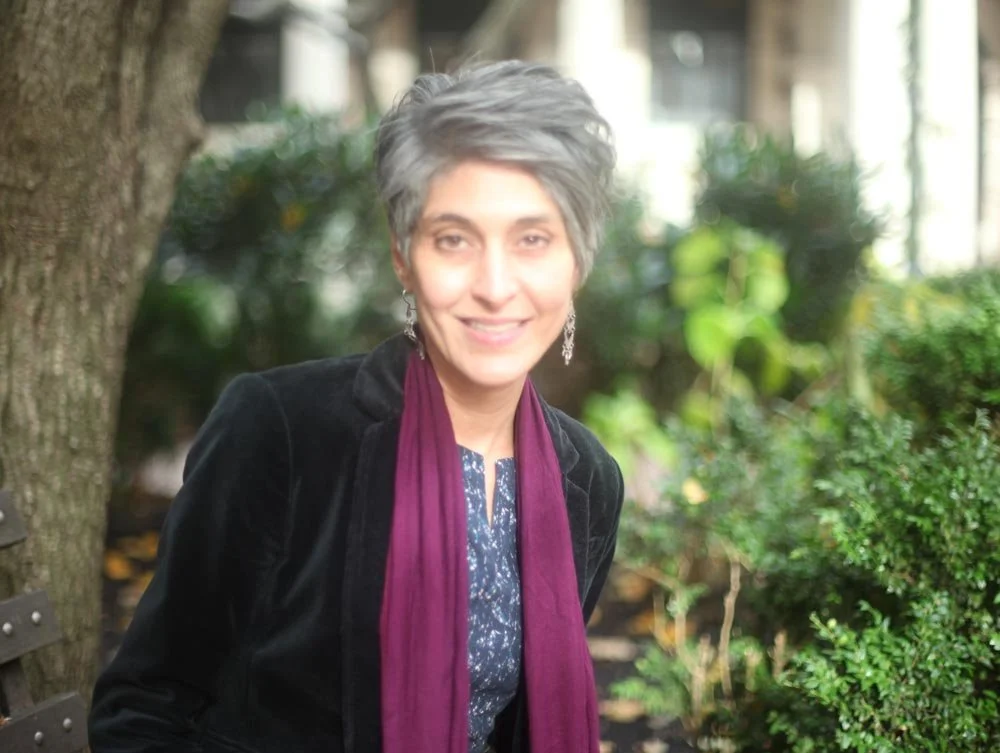In this episode of the Speaking Out of Place podcast, Professor David Palumbo-Liu and Azeezah Kanji talk with Manijeh Moradian about her book, This Flame within: Iranian Revolutionaries in the United States, which documents the formation of Iranian student activists in the US in the 1970s, and their impact on the Iranian revolution.
This Flame Within is not only a book about history, but also a book about memory and the importance of retrieving these memories of anti-imperialist pasts against the backdrop of a thoroughly imperial present for the possibilities of building anti-imperial futures.
They discuss is the cross-pollination between these groups and groups based in the US working toward Third World Liberation, supporting Palestinian rights, and protesting the Vietnam war. They also connect all these topics to today’s situation in Iran, and the Iranian diaspora.
Manijeh Moradian is assistant professor of Women’s, Gender and Sexuality Studies at Barnard College, Columbia University. Her book, This Flame Within: Iranian Revolutionaries in the United States, was published by Duke University Press in December 2022. She has published widely including in American Quarterly, Journal of Asian American Studies, Scholar & Feminist online, and Women’s Studies Quarterly. She is a founding member of the Raha Iranian Feminist Collective and on the editorial board of the Jadaliyya.com Iran Page.
MANIJEH MORADIAN
So you start having Iranian students coming in the late 1950s. The numbers increased throughout the sixties and seventies. Tens of thousands of Iranian students, more than from any other country, come to the United States to study. At the moment, in 1979, the moment of the revolution, there were 50,000 or more students in the United States. So it's by far the largest foreign student population here. The geographic spread is really interesting. Again, this also changes over time because more and more students start coming, and also because in the 1970s, it became possible for less affluent students to come.
For the first time, there were more government scholarships available to certain groups of workers in the oil industry, for example, to their children. They were not blue-collar, but more like white-collar office workers. Before that, it had been mostly wealthy families who could afford to send their children abroad and who had access to education in the first place, but when you have less affluent students coming to less expensive, smaller colleges. By the 1970s, Iran had become so repressive that young people were trying to leave. They want to leave, and some of them want to leave intentionally to become activists and join the Iran student opposition movement.
*
Speaking Out of Place, which carries on the spirit of Palumbo-Liu’s book of the same title, argues against the notion that we are voiceless and powerless, and that we need politicians and pundits and experts to speak for us.
Judith Butler on Speaking Out of Place:
“In this work we see how every critical analysis of homelessness, displacement, internment, violence, and exploitation is countered by emergent and intensifying social movements that move beyond national borders to the ideal of a planetary alliance. As an activist and a scholar, Palumbo-Liu shows us what vigilance means in these times. This book takes us through the wretched landscape of our world to the ideals of social transformation, calling for a place, the planet, where collective passions can bring about a true and radical democracy.”
David Palumbo-Liu is the Louise Hewlett Nixon Professor and Professor of Comparative Literature at Stanford University. He has written widely on issues of literary criticism and theory, culture and society, race, ethnicity and indigeneity, human rights, and environmental justice. His books include The Deliverance of Others: Reading Literature in a Global Age, and Speaking Out of Place: Getting Our Political Voices Back. His writing has appeared in The Washington Post, The Guardian, The Nation, Al Jazeera, Jacobin, Truthout, and other venues. Twitter @palumboliu
Apple Podcasts · Spotify · Website



















































